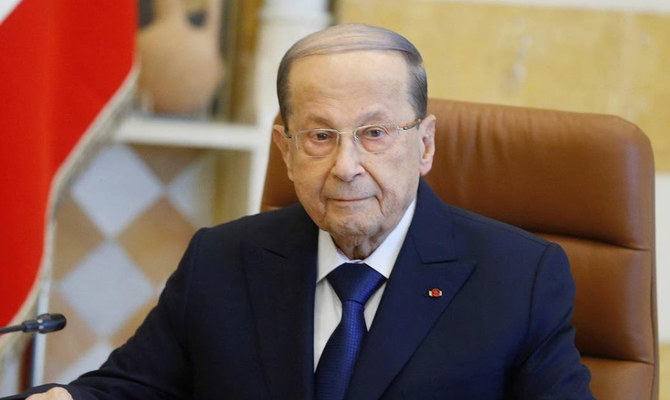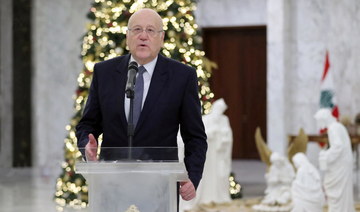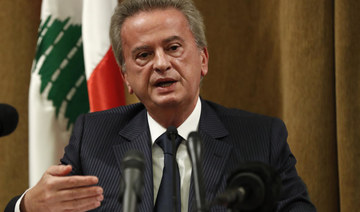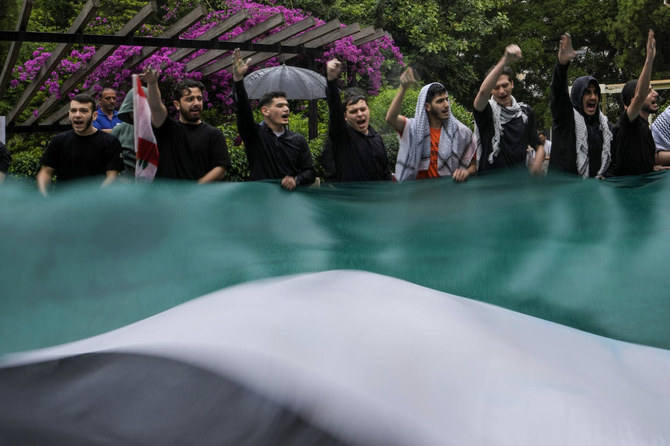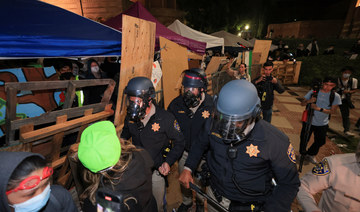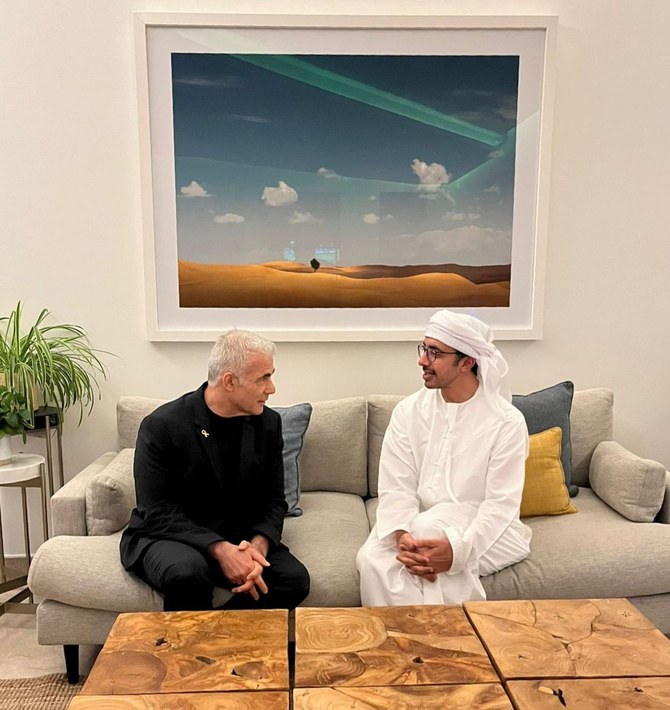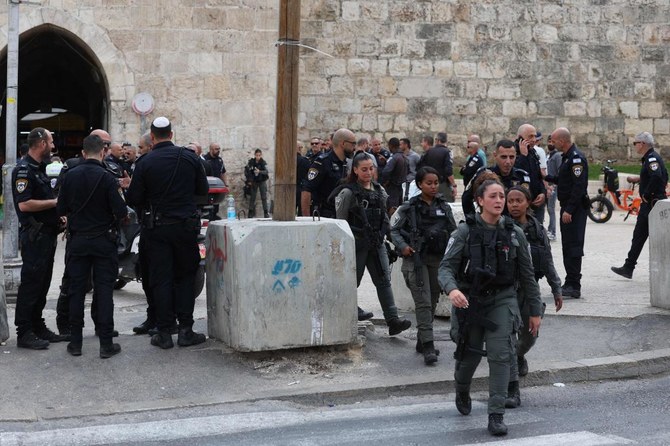BEIRUT: Lebanese President Michel Aoun on Thursday reiterated his determination to work in cooperation with parliament and the government as the country prepares to begin its negotiations with the International Monetary Fund.
Speaking during the traditional annual meeting with members of the diplomatic corps, the president also confirmed that the parliamentary elections would take place on time.
Aoun expressed his support for the criminal audit of the central bank and other departments, institutions and councils. He also highlighted his keenness to achieve reforms and approve a financial and economic recovery plan in the coming weeks in preparation for the discussions with the IMF.
His remarks came as former Prime Minister Saad Hariri returned to Beirut from the UAE after a long absence. It was reported Hariri plans to reorganize the Future Movement party and resolve the issue of its participation in the upcoming elections.
Hariri also visited Prime Minister Najib Mikati, Grand Mufti Sheikh Abdul Latif Derian, and the tomb of his late father, former Prime Minister Rafik Hariri, in Beirut.
Meanwhile, former Prime Minister Tammam Salam announced his unwillingness to run again for the parliamentary seat.
He said he wanted to “make way for a serious change, by making way for new blood, young and clean thought, aspiring for pure national goals, respecting the demands of the rebellious people and seeking change.”
Free Patriotic Movement leader, MP Gebran Bassil, confirmed that his party “will run in the upcoming parliamentary elections in all regions.”
He also commented on his electoral alliance with Hezbollah in an interview with the Anadolu Agency.
“The feud is obvious and major with the party when it comes to internal matters, and if these issues are resolved, the question of electoral alliances will be determined on their basis,” Bassil said.
But he showed for the first time his backing for Hezbollah’s position on the role of the judicial investigator in the 2020 Beirut port explosion case.
Judge Tarek Bitar’s work was “discretionary,” he said, and rejected claims that the matter had been “politicized.”
Hezbollah has led the campaign to remove Bitar, accusing him of bias after he pursued some of its political allies.
Hezbollah and Amal said this month they would end a boycott of Cabinet sessions, opening the way for ministers to meet after a three-month break.
In preparation for a Cabinet session on Monday, Finance Minister Youssef Khalil is expected to hand over the 2022 draft budget to the prime minister on Friday.
Meanwhile, the judiciary has begun an investigation after a Lebanese man was arrested for staging an armed robbery at a bank in his hometown of Jeb Jenin in the western Bekaa on Thursday.
Abdullah Al-Saii is reported to have held employees at gunpoint and thrown gasoline at them while threatening to burn the bank down unless he was given access to his savings that had been frozen.
A security source told Arab News that Al-Saii “emptied (cash) drawers at the Bank of Beirut and the Arab Countries branch and forced employees to open the main safe.”
He managed to withdraw $50,000 and was on his way home to give it to his wife when he surrendered to the security services. He gave himself up in the belief he would later be released as “he had regained his right and was not stealing.”
The Lebanese judiciary issued an arrest warrant for Al-Saii’s wife, who said she would go on hunger strike until her husband was released.
The security source said: “If Al-Saii is not held accountable for his actions, others will do what he did, and then chaos and the law of the jungle will prevail.”
The incident has led to a division between those who sympathize with Al-Saii and activists who demand accountability for the banking policies that led to the collapse of the Lebanese pound.
Some people expressed support for Al-Saii on social media, saying that “what was taken by force can only be recovered by force.”
Others described his actions as “heroic.”
One person wrote that “the state has turned its citizens into criminals and terrorists with its plan to seize depositors’ money.”
But the judiciary, banking and security authorities condemned Al-Saii’s act.
The Executive Council of the Federation of Banks’ Employees Syndicates asked: “Are we in a state of law or on a farm run by the powerful, authoritarians and outlaws?”
The incident would have led to a massacre if the BBAC management had not responded to the depositor’s request, it added.
Authorities imposed restrictions on bank transactions in 2019 and set a ceiling on withdrawals and transfers to accounts abroad.
Over the past two years, angry depositors have carried out dozens of protests in front of the central bank and private lenders in a bid to recover their money. The protests have led to ATMs and banks being vandalized — a closed branch in Beirut was burnt down — and staff being threatened. But Al-Saii is the first to make such a direct threat.
About $3.8 billion was withdrawn from banks between October and November 2019 following the protest movement that swept the country. By the end of that year, banks had frozen all withdrawals.



